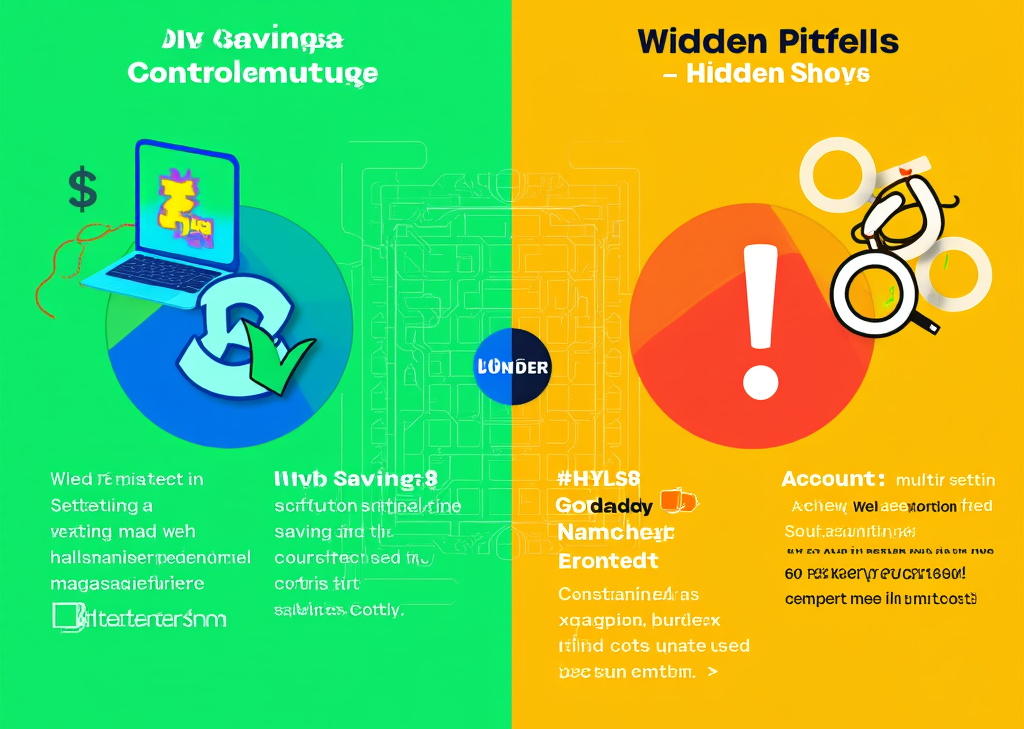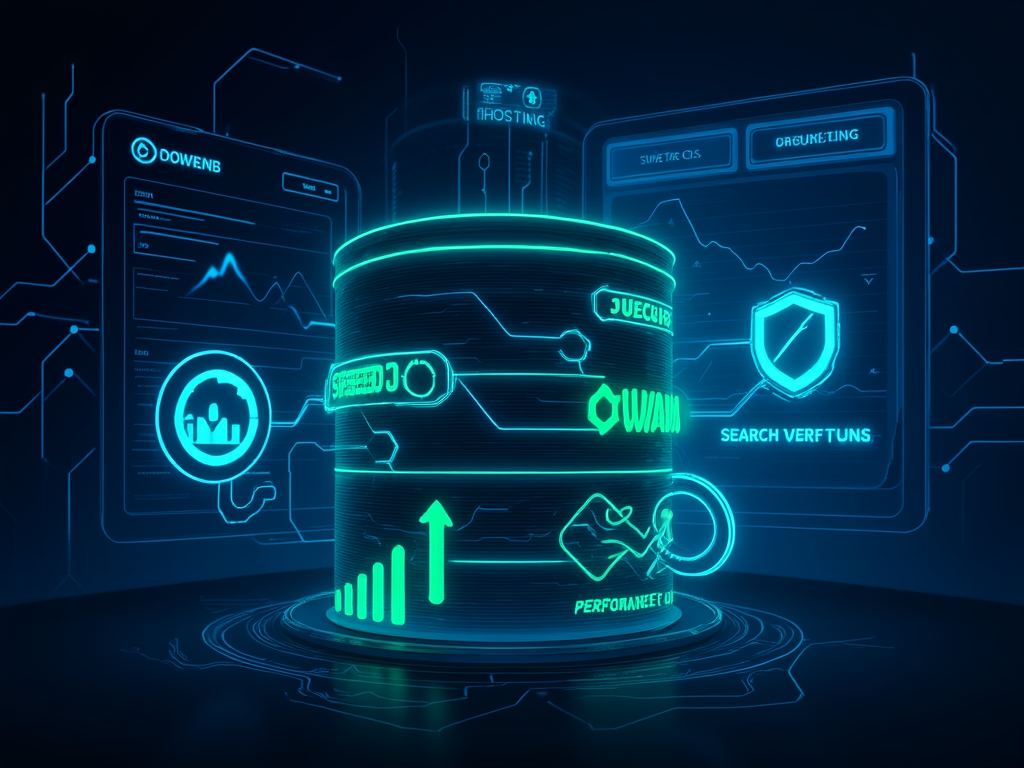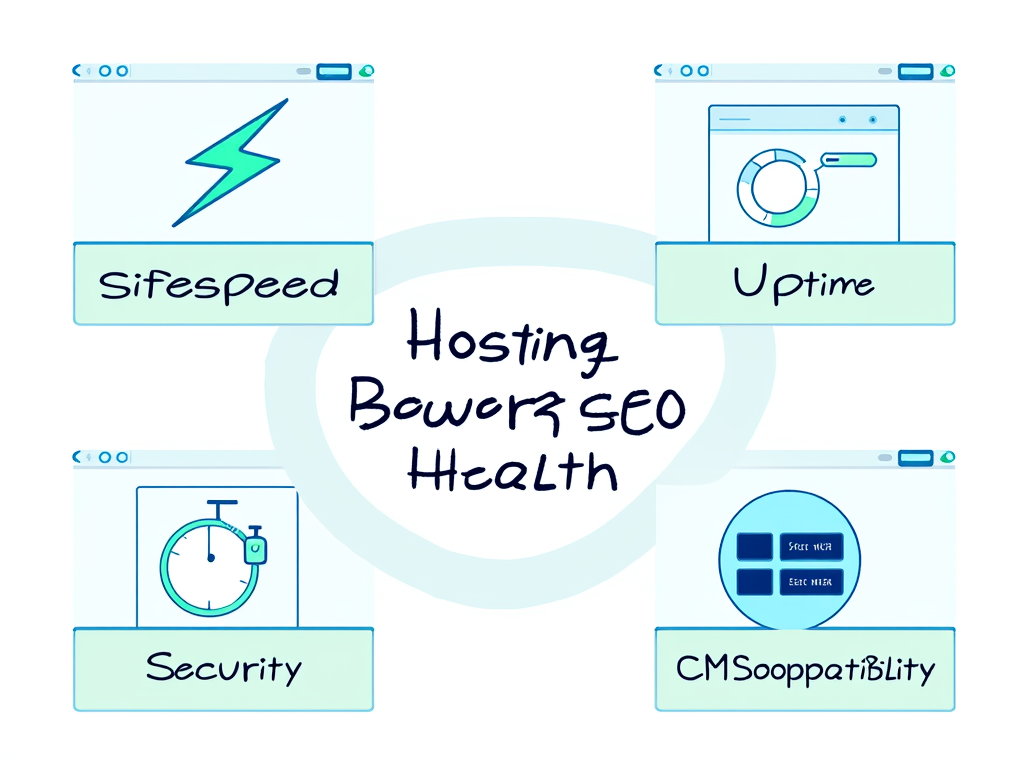The pros and cons of DIY domain registration
შესავალი
Domain registration is the first cornerstone of any online venture. In the world where digital identities thrive, securing your domain name isn't just a formality—it's a powerful statement of ownership. The choice of registering your domain name yourself—also known as DIY domain registration—presents an intricate dance of benefits and challenges. With the potential to harness significant cost savings and control over your online presence, it's tempting to take the plunge. Yet, lurking beneath the surface are complexities that could ensnare even the most diligent of entrepreneurs.
Understanding DIY Domain Registration
DIY domain registration refers to the process where you actively navigate through registrars' platforms to claim your domain without relying on web hosting services. It’s about standing at the forefront of your digital identity. But what does this really entail?
Cost Efficiency
Say goodbye to inflated prices! Many domain registrars, like Namecheap and GoDaddy, offer enticing introductory offers, sometimes even as low as a few dollars for the first year. The trade-off here is stark; while hosting companies often pair domain registration with their services at a higher rate, independently registering can lead to significant long-term savings. Imagine being able to pocket that extra cash to invest in your next big project! It’s a thrill.
Centralized Control
Embracing a DIY mentality empowers you with unrivaled control. Think about it: you register your domain, and it sits independently, waiting for you to point it toward the web host of your choice. This freedom means fewer hassles during migrations if you ever decide to switch service providers. Picture the smooth transition of wrapping up with one provider and flicking your wrist to set up with another. No strings attached—just pure flexibility.
Advanced Features Await
Who wouldn't want premium features at their fingertips? Many registrars are not just about offering domains—they roll out the red carpet with tools that market your brand, provide analytics, or even help you secure premium domains that could elevate your business. The allure of additional services such as WHOIS-ის კონფიდენციალურობა enables you to cloak your personal details from prying eyes. It could feel like donning a stylish cloak of invisibility, preserving your privacy while simultaneously projecting professionalism.
Challenges of DIY Domain Registration
However, one must tread carefully. The challenges associated with DIY registration are as real as the potential rewards.
Multiple Accounts, Multiple Bills
Each domain might demand its own account, its own set of bills to remember and juggle—hello, convoluted paperwork! This might sound daunting, particularly for those just dipping their toes into the digital realm. It’s not about paranoia; it’s practicality. Failing to keep track could easily lead to missed renewals, leaving you bereft of your hard-earned domain.
Technical Complexity
Let’s face it, not everyone is a tech wizard. Navigating through DNS settings and configuring your domain to cooperate with your web host can feel like deciphering a foreign language. Anxiety kicks in! But fear not—help is often just a click away. Many reputable registrars come with user-friendly dashboards and vibrant customer support ready to hold your hand as you embark on this venture.
Hidden Costs and Renewal Fees
The glittering allure might turn dim when renewal fees come into play. Oftentimes, those catchy introductory rates conceal higher costs lurking in the shadows. Imagine receiving a renewal notice that could send your wallet into a tailspin! Realistically, it's essential to scrutinize the fine print; that "too good to be true" offer might just be.
Building Trust Through Transparency
Private registration, while offering protection, can paradoxically breed mistrust among potential visitors. For e-commerce sites or professional ventures, the absence of contact information may heighten skepticism. What’s the solution? It’s all about creating a comfortable balance—think about providing clear, visible contact details on your site to foster transparency. Envision a welcoming portal, where users feel safe and secure, inviting them to engage further.
The Complication of Domain Transfers
Lastly, the dark cloud of complexity regarding transfers shouldn't be ignored. When WHOIS privacy is enabled, the process transforms from straightforward to tricky, overwhelming both registrar support teams and you. Planning becomes paramount. Attempting to transfer without considering the intricacies involved could lead to unexpected delays, akin to being caught in a bureaucratic labyrinth.
As you carve out your place in the ever-evolving digital landscape, consider these pros and cons of DIY domain registration. It is not merely a mechanical process; it’s a journey to defining your brand in a sea of digital noise. The runway is all yours. Think deeply about the foundations you wish to build upon. The balance of control, savings, and the hurdles faced can shape the path of your online identity.
Why not lay down the first brick today? The future of your online presence awaits your command.
FINDDOMAIN.GE (შპს ინტერნეტ სერვისები) ძალიან საინტერესო და სწრაფად განვითარებადი IT კომპანიაა. ძირითადი მიმართულებებია: ვებ-განვითარება, დომენები და ვებ-ჰოსტინგი. ის ასევე სთავაზობს კლიენტებს ძირითად სერვისებთან დაკავშირებულ ქვე-მომსახურებას და აუთსორსინგს.
საუკეთესო შეთავაზებები:
გსურთ შექმნათ თქვენი საკუთარი კომპანიის ვებსაიტი ან შექმნათ თქვენი საკუთარი ონლაინ ბიზნესი ინტერნეტში?
– ვებ ჰოსტინგი
– დომენის რეგისტრაცია
– ვებ-განვითარება
– საიტის შემქმნელი



Wrapping Up the DIY Domain Registration Journey
Navigating the world of DIY domain registration can feel like walking a tightrope; one misstep could send you spiraling. But armed with knowledge and insight, you can find your balance. Let’s take a closer look at some final considerations that can make your foray into this territory successful.
Educate Yourself on Registrar Policies
Each domain registrar has its own set of policies, and understanding them is crucial for smooth sailing. For instance, familiarizing yourself with transfer rules, renewal timelines, and hidden fees can prevent nasty shocks down the road. Some registrars, like ნეიმჩეიპი, are known for straightforward policies, while others may have complex terms that could trip you up. Before you officially register, spend time reading through user reviews and FAQs to get a comprehensive understanding of what to expect.
Utilizing Tools and Resources
Don’t forget that the digital age is ripe with tools designed to simplify your life. Management dashboards from registrars often include features that alert you to upcoming renewals. Additionally, employing automation tools for reminders can help streamline your registration processes, ensuring that you never miss a deadline. Websites like WHOIS.net can help you keep track of your domain's information, which is essential for maintaining ownership.
Enhancing Security Measures
As you forge your online presence, security should never take a backseat. Implementing features like two-factor authentication (2FA) when managing your registrar account fortifies your defenses against unauthorized access. As cyber threats continue to grow, this simple measure can protect your domain from being hijacked. Always ensure that your registrar provides security features, such as SSL certificate options, enhancing the trustworthiness of your site.
Maximizing SEO Opportunities
Registering a domain is just the beginning—what comes next holds equal weight. SEO plays a vital role in visibility and success. Choose a domain name that embodies your brand’s essence and is easy to remember. Remember, shorter domain names create a stronger brand presence and are more likely to be entered directly by users. Utilize keywords relevant to your industry without making it feel forced. For example, including your niche service in your domain can improve search rankings and user engagement.
Building a Strong Brand Identity
A domain name is your online calling card; it reflects your brand identity. Consider using domain extensions that resonate with your audience—whether that be .com, .net, or perhaps something more niche like .tech for technological endeavors. Investing time in choosing the right domain is reflective of how you wish to present yourself in an expansive digital market.
დასკვნა
In the end, DIY domain registration is a liberating yet complex endeavor that requires careful thought and strategy. The pros of cost savings, greater control, and access to advanced features must be balanced against the nuances of managing multiple accounts, navigating technicalities, and ensuring long-term security. With the right planning and education, however, you can transform these challenges into stepping stones for a flourishing online presence.
As your online journey begins, remember that knowledge is power. Stay informed, make thoughtful choices, and watch your digital landscape flourish. Secure your domain with intention and purpose—a well-planned domain registration today paves the way for your online legacy tomorrow.
სასარგებლო ვიდეო რესურსები
To further ease your DIY domain registration experience, here are a few videos that provide valuable insights:
- How to Register a Domain Name – Step by Step Guide
- Managing DNS for Your Domain: A Beginner's Guide
- Understanding WHOIS Privacy Protection Explained
ცნობები
– ნეიმჩეიპი
– WHOIS
– GoDaddy
– ჰოსტინგერი
FINDDOMAIN.GE (შპს ინტერნეტ სერვისები) ძალიან საინტერესო და სწრაფად განვითარებადი IT კომპანიაა. ძირითადი მიმართულებებია: ვებ-განვითარება, დომენები და ვებ-ჰოსტინგი. ის ასევე სთავაზობს კლიენტებს ძირითად სერვისებთან დაკავშირებულ ქვე-მომსახურებას და აუთსორსინგს.
საუკეთესო შეთავაზებები:
გსურთ შექმნათ თქვენი საკუთარი კომპანიის ვებსაიტი ან შექმნათ თქვენი საკუთარი ონლაინ ბიზნესი ინტერნეტში?
– ვებ ჰოსტინგი
– დომენის რეგისტრაცია
– ვებ-განვითარება
– საიტის შემქმნელი








